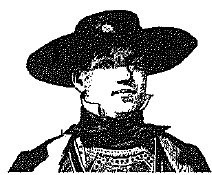A New Birth of Freedom: Lincoln at Gettysburg by Philip B. Kunhardt, Jr.; Little, Brown; Boston.
On November 19, 1863, after Edward Everett had completed a now-forgotten oration of almost two hours at the dedication of a national cemetery on one of the Civil War’s bloodiest battlefields, Abraham Lincoln rose to deliver “a few remarks.” His speech of 271 words lasted about two minutes, and Lincoln was certain that it was a “failure,” sure to fulfill its own prediction: “the world will little note, nor long remember what we say here.” However, as a simple but eloquent affirmation of unifying American ideals, the Gettysburg Address has been long remembered by the citizens of a nation reunited through the vision and integrity of its author. By providing a definitive study of that address, complete with numerous photographs and the complete text of all extant versions of the address, Philip Kunhardt, Jr. has performed an invaluable service.
Nonetheless, as a thoughtful reader compares Lincoln’s immortal speech and the cause for which it was the fitting summation with the proclamations issuing from contemporary political movements, the contrast is troubling. Whereas for Lincoln the proposition that “all men are created equal” meant simply the end of slavery and the natural equality of men, white and black, before the law, modern demagogues preach a radical and inconsistent egalitarianism which uses the law as a coercive tool for creating quotafied un equals before the law. Lincoln endangered his political career by declaring that no nation could endure as a “house divided” and then led America through a torturous, fratricidal conflict to reunite the states on a common foundation of freedom and equality. But modern politicos advance their own narrow interests by championing chaotic “pluralism” which acknowledges no value center. Indeed, one of the bitter ironies that makes a reading of the Gettysburg Address unsettling is the fact that few areas of the country outside of the defeated Confederate States now respond to, or even understand, his appeal, expressed in near-biblical style, for a “nation under God.” Because the notion of unity under anyone, even God, is noxious to many self-assertive Americans, we are probably an even more hopelessly divided people now than we were in 1861. Even as Federal machinery imposes ever more quantified regulations upon states, businesses, and schools, the shared ethical, political, and religious heritage which defines a living community finds fewer and fewer manifestations. With malice towards millions and charity towards a few other partisans, Americans now glare at each other out of the trenches dug on opposite sides of abortion, nuclear arms, busing, homosexuality, immigration, ecology, and a dozen other explosive questions. On some of these issues, as on slavery, the room for compromise is narrow and the no-man’s-land is wide. Fierce contests seem inevitable for some time to come. Let us hope that these battles produce no cemeteries but instead opportunities for new Lincolns to announce yet another “new birth of freedom” in a more firmly united land.



Leave a Reply